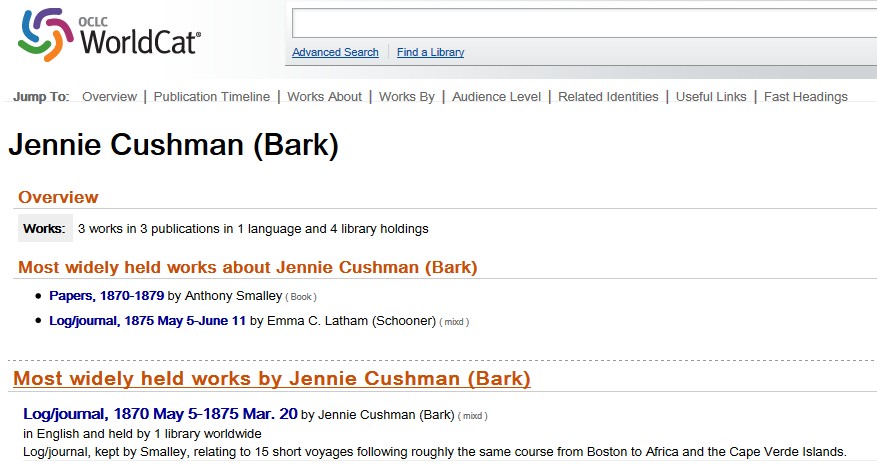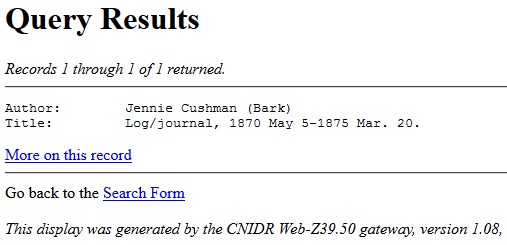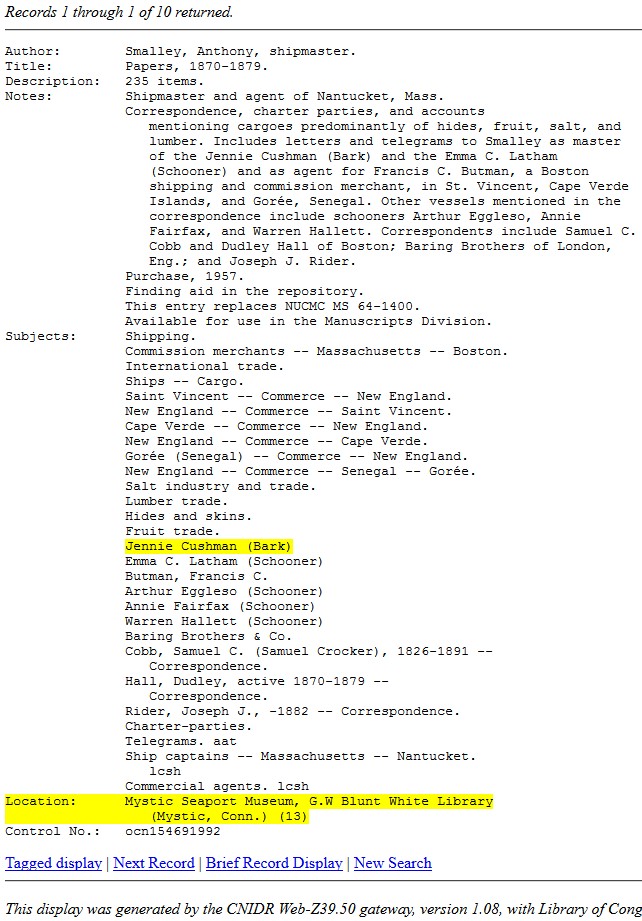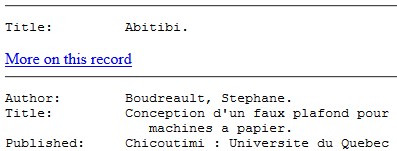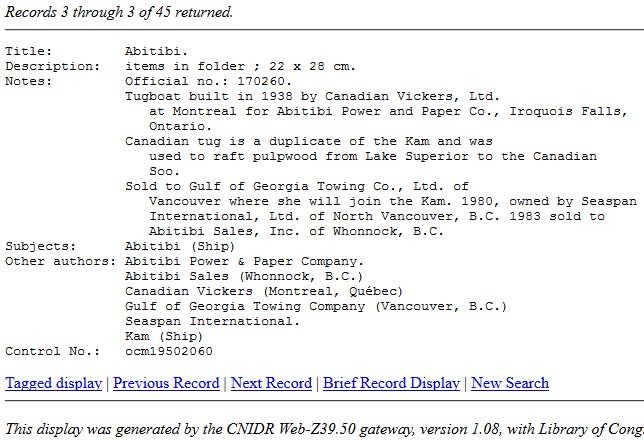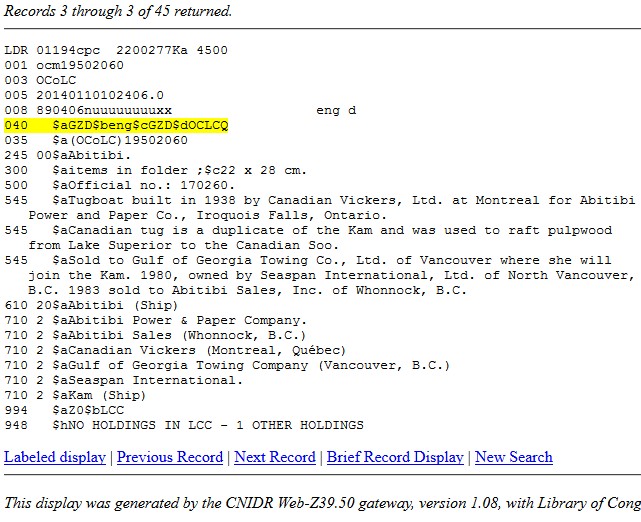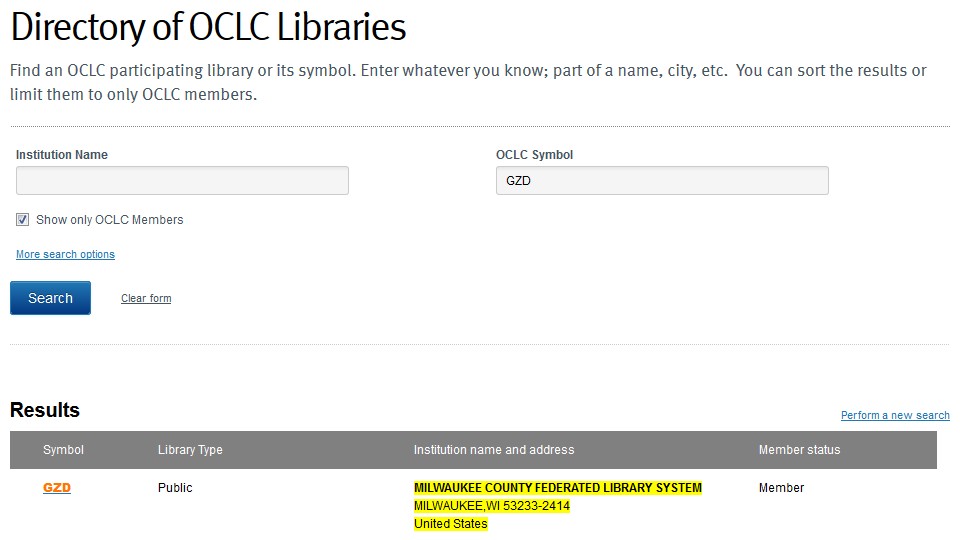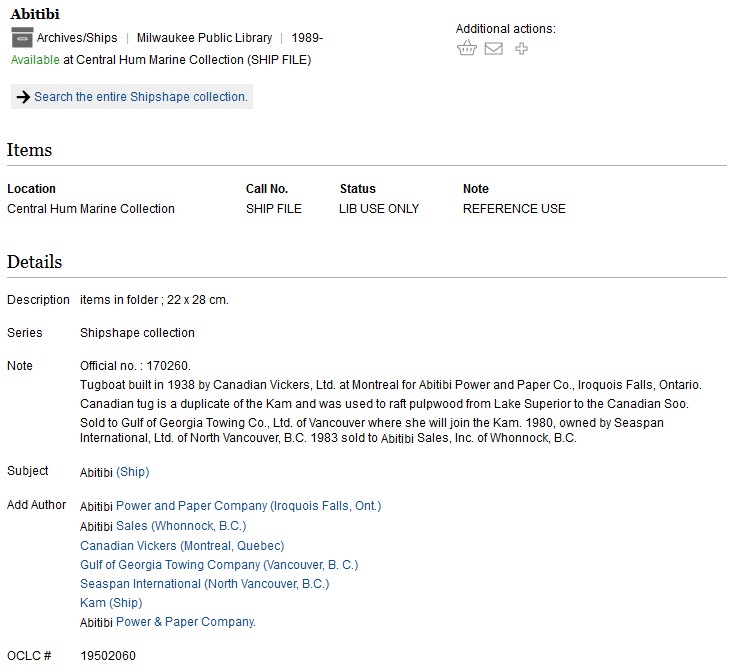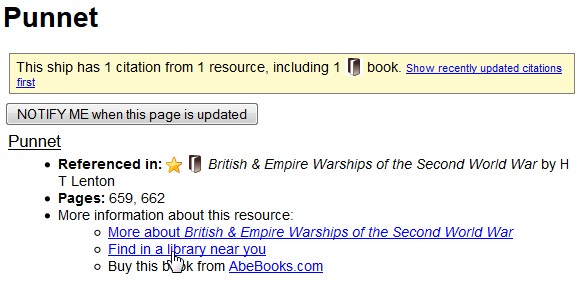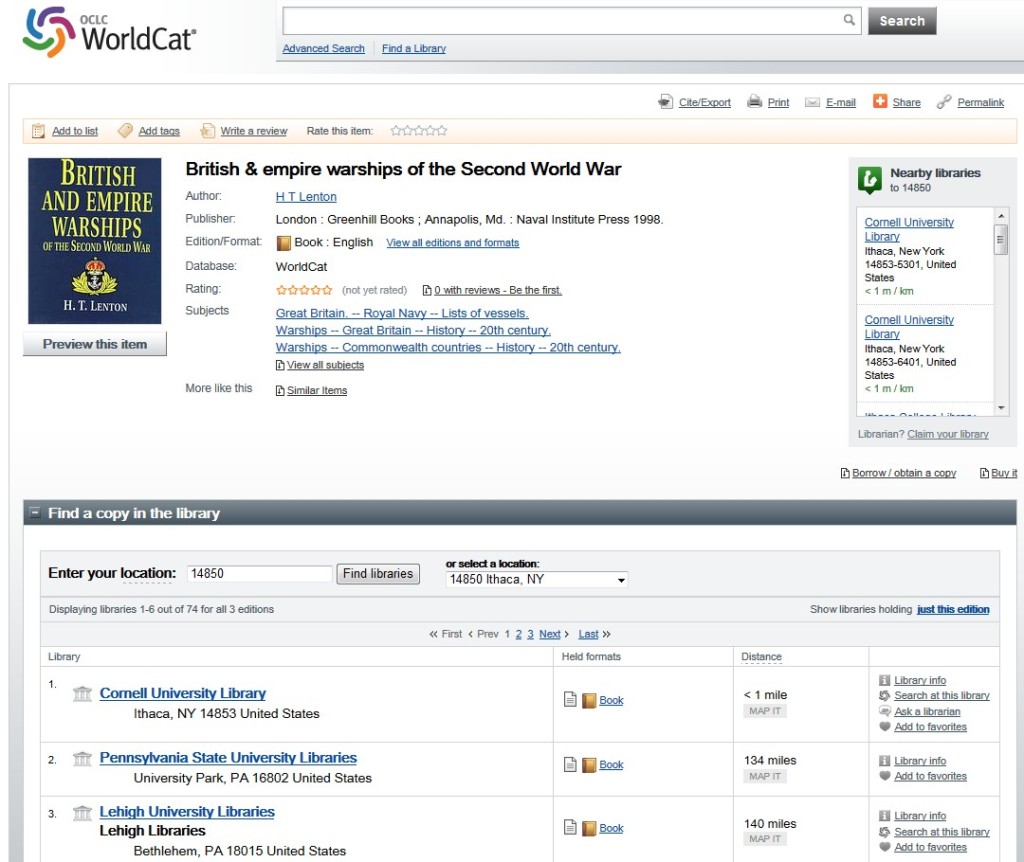My previous post looked at how WorldCat records can be used to locate books mentioned in the database, and locate books that are about a specific ship. There’s still a lot more that WorldCat can do, but there are some idiosyncratic methods of tracking down the actual resources, and I want to write about those here.
Remember that all the citations from WorldCat are in the free database, which anyone can access, without any subscription at all.
A book “by” a ship is one in which the vessel is the corporate author, so this would include logbooks, journals kept by the ship’s crew while on board (that is, while they’re at work; private reminiscences are still written by the person who recorded the information), and similar corporate works. Manuscript collections also include a lot of mentions of ships, and unlike the half-dozen or fewer subject headings of a monograph, a large manuscript collection could have dozens or hundreds of subject headings. (Again, these were determined and assigned by librarians, or more likely, archivists. This is incredibly in-depth work, and the ‘finding aid’ created for a large manuscript collection is often a significant scholarly work in and of itself.)
However, finding the actual manuscript collection can be difficult, and that’s what this blog post is really about. Here’s how to find out which institution owns the manuscript, or journal, or logbook, that you’re seeking. Imagine that you’ve done a search for “Jennie Cushman” and you saw an entry for “Jennie Cushman (Bark)” which led you to this entry in WorldCat, and the entry called “Log/journal, 1870 May 5-1875 Mar. 20” by Jennie Cushman (bark), looked especially useful.
You click on the link for “Log/journal”, which looks great, but has no location listed:
So, what do you do?
First, understand where this information came from. These records came from the National Union Catalog of Manuscript Collections, also known as NUCMC, and pronounced “nuck-muck”. If you search NUCMC, you can find who owns the collection.
Go to the NUCMC search page at http://www.loc.gov/coll/nucmc/oclcsearch.html, choose the third search option (you can use any of them, but the others will often return too many unrelated results), and search for the ship name. In this case, your result will look like the following:
Click on “More on this record,” and the complete result will provide lots more information about this entry, including its location (highlighted below). Looks like it’s time to book a spot on the ferry to Nantucket!
There are more records in NUCMC, as noted in the original results from WorldCat. Go back to the NUCMC page and use the first search option, and search for “Jennie Cushman”. You’ll get a lot of results — some that don’t match what you’re searching — but look for the matching titles; in this case, “Papers, 1870-1879“. (You could also search NUCMC by the title of the collection, knowing that the ship name will appear as a subject heading.) This one also has “Jennie Cushman (Bark)” as a subject heading, and a location, in this case at Mystic Seaport, at the bottom.
Sometimes, however, there’s not even a “Location:” note in the record. Never fear; there are still ways of tracking down the information!
Imagine you’ve done a search for “Abitibi” and you see the entry “Abitibi (Ship)”, which leads you to this WorldCat entry, which then takes you to an entry for archival data, which also has no holdings information.
Again, this record came from NUCMC. Go to http://www.loc.gov/coll/nucmc/oclcsearch.html and search for the ship name. In this case, your third result will look like the following:
Click on “More on this record”, and you’ll see the NUCMC entry for this collection, but without any Location information.
So, now, we get a bit technical. Click on “Tagged Display”, and you’ll see the MARC record for this entry. The only thing to focus on here is the 040 field, which shows which library created this record, and therefore who owns it. (Or, I suppose, who owned it when it was cataloged, but since these are all manuscript records, ownership likely won’t have changed. In any case, we’ll confirm before we book a plane ticket to somewhere.)
The 040 field, subfield a, reads “GZD”. (“$a” is the subfield divider; MARC is a very old technology, but it was cutting edge in its time…)
We now need to discover who “GZD” is. For this, we go to another service from OCLC, maker of WorldCat. At http://www.oclc.org/contacts/libraries.en.html, they offer a “Directory of OCLC Libraries“. Type “GZD” in the “OCLC Symbol” field, and we get this result:
OK! Now we know (or feel reasonably certain) that Milwaukee County library owns this item! Google that name to get their website (it’s http://www.mcfls.org/), then search their catalog for “Abitibi”. And there you have it:
You can’t request that the library send this to your library, but at least now you know where it is, and that MPL is worth a visit, next time you visit Milwaukee County.
This does get admittedly a bit technical. If you have questions, please post them in the comments below.

